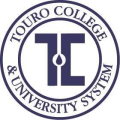9:00 - 9:30
Greetings and opening remarks
Jewish Historical Institute
Chair: Konrad Zieliński (Maria Curie-Sklodowska University in Lublin/ Warsaw Ghetto Museum)
Albert Stankowski, Director of the Warsaw Ghetto Museum
Paweł Śpiewak, Director of the Jewish Historical Institute
Jan Rydel, Member of the Steering Committee of the European Network Remembrance and Solidarity
9:30 - 10:30
Keynote lecture
Stephan Lehnstaedt (Touro College Berlin): In the eyes of the occupier. Ordinary Germans looking at Poland, 1939-1940
10:45 - 12:45
Session no. 1: Jewish persecutions 1939-1941: regional perspectives
Chair: Daniel Blatman (Hebrew University/ Warsaw Ghetto Museum)
Szymon Pietrzykowski (Institute of National Remembrance, Poznań):
Battlefield, internment, the return and persecution: The odyssey of Jewish soldiers from Poznańskie (1939-1941)
Jakub Chmielewski (The State Museum at Majdanek / Maria Curie-Sklodowska University in Lublin):
Between exclusion and ghettoization: The fate of Lublin Jews under the German occupation (September 1939–March 1941)
Lea Prais (Yad Vashem, Jerusalem):
The small towns in occupied Poland: A look at the recent past in the context of testimonies from the Oyneg Shabes archives
Tomasz Domański (Institute of National Remembrance, Kielce):
Persecution of Jews in the provincial ghettos of the Radom district (1939-1941)
14:00 - 15:30
Session no. 2: Poles, Jews and the Germans’ occupation: Comparative paradigms
Chair: Jacek Młynarczyk (Nicolaus Copernicus University in Toruń/ Muzeum Getta Warszawskiego)
Alicja Bartnicka (Nicolaus Copernicus University in Toruń/ Muzeum Getta Warszawskiego):
The organization of forced labor for the Jewish population in the General Government (until 1941)
Martin Borkowski-Saruhan (Georg-August-Universität Göttingen):
Sporting Occupation: Jews and non-Jews in Nazi-Occupied East Upper Silesia, 1939–41
Karolina Wasiluk (Catholic University of Lublin):
The Fate of Poles and Jews, 1939-1941: the Lublin district as a case study
15:45 - 17:15
Session no. 3: Race and patters of persecution: ethnic groups in Poland and the German policy
Chair: Andrei Zamoiski (Berlin)
Michał Turski (Historisches Institut/ Osteuropäische Geschichte, Giessen):
A real Apartheid? German ethnic lists and the separation of Germans and Poles in the Warthegau
Isabel Röskau-Rydel (Pedagogical University of Krakow):
Volksdeutsche in the General Government: the Kraków district as a case study
Alicja Gontarek (Institute of National Remembrance, Warsaw/ Maria Curie-Sklodowska University in Lublin):
Persecution of the Roma people in occupied Poland (1939-1941): Typology, strategies, consequences
17:30 - 18:45
Session no. 4: Special event: Introducing the Jewish Historical Institute new encyclopaedia of the Ghettos
Chair: Andrzej Żbikowski (Jewish Historical Institute)
Maria Ferenc Piotrkowska (Jewish Historical Institute):
The Encyclopaedia in the context of the current research on Warsaw ghetto and the digitalization of the humanities
Katarzyna Person (Jewish Historical Institute):
The Warsaw ghetto elite through the prism of preparing the encyclopaedia
Justyna Majewska (Jewish Historical Institute):
Research program on economic changes in the Warsaw ghetto based on the outlines of "Oneg Shabbat"





